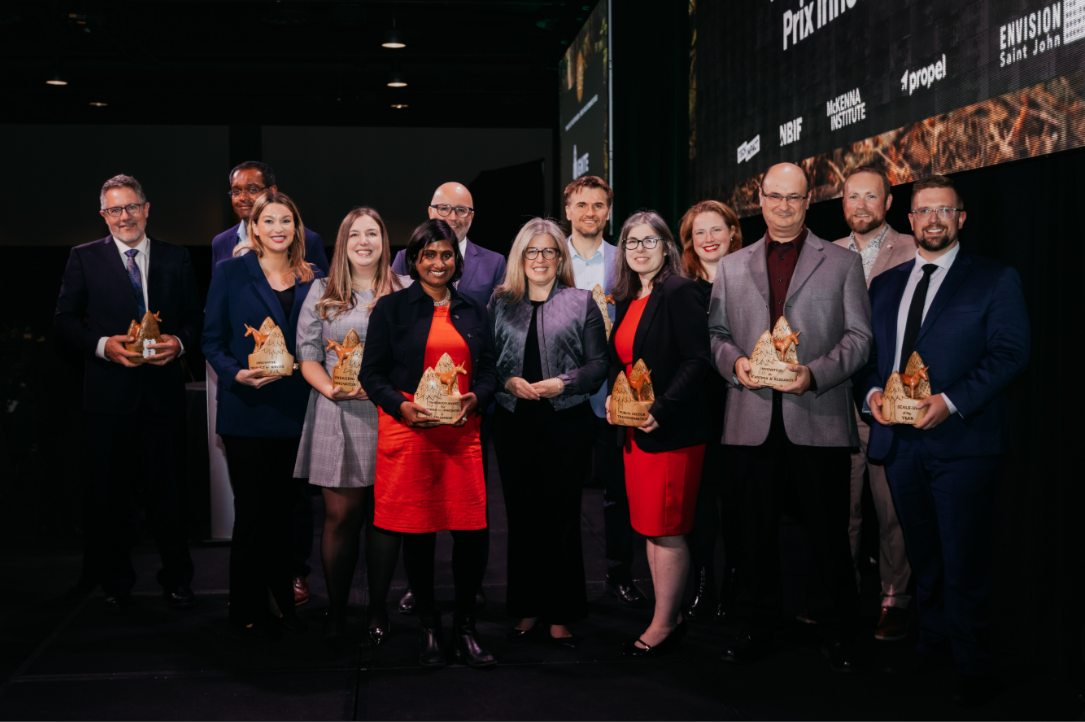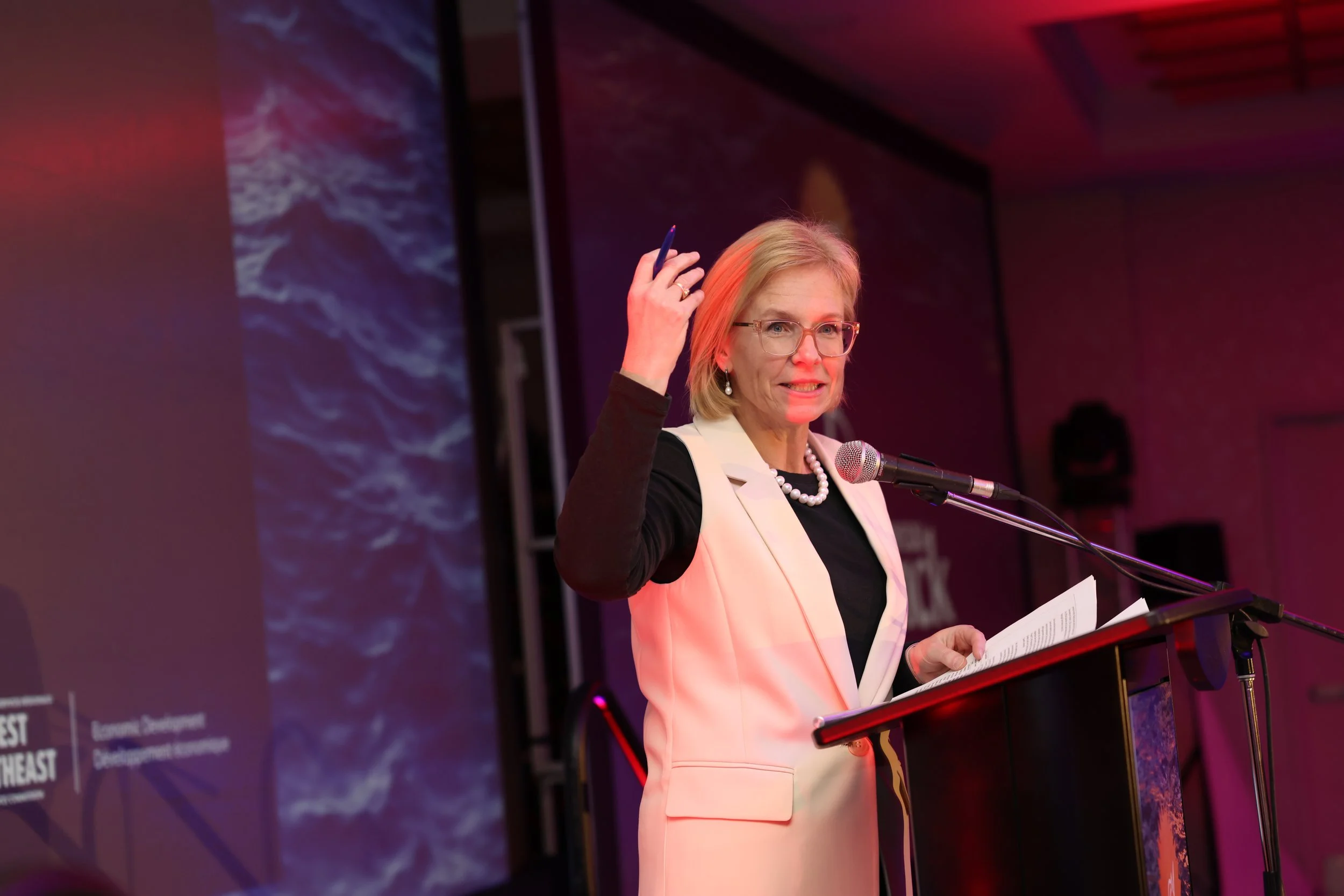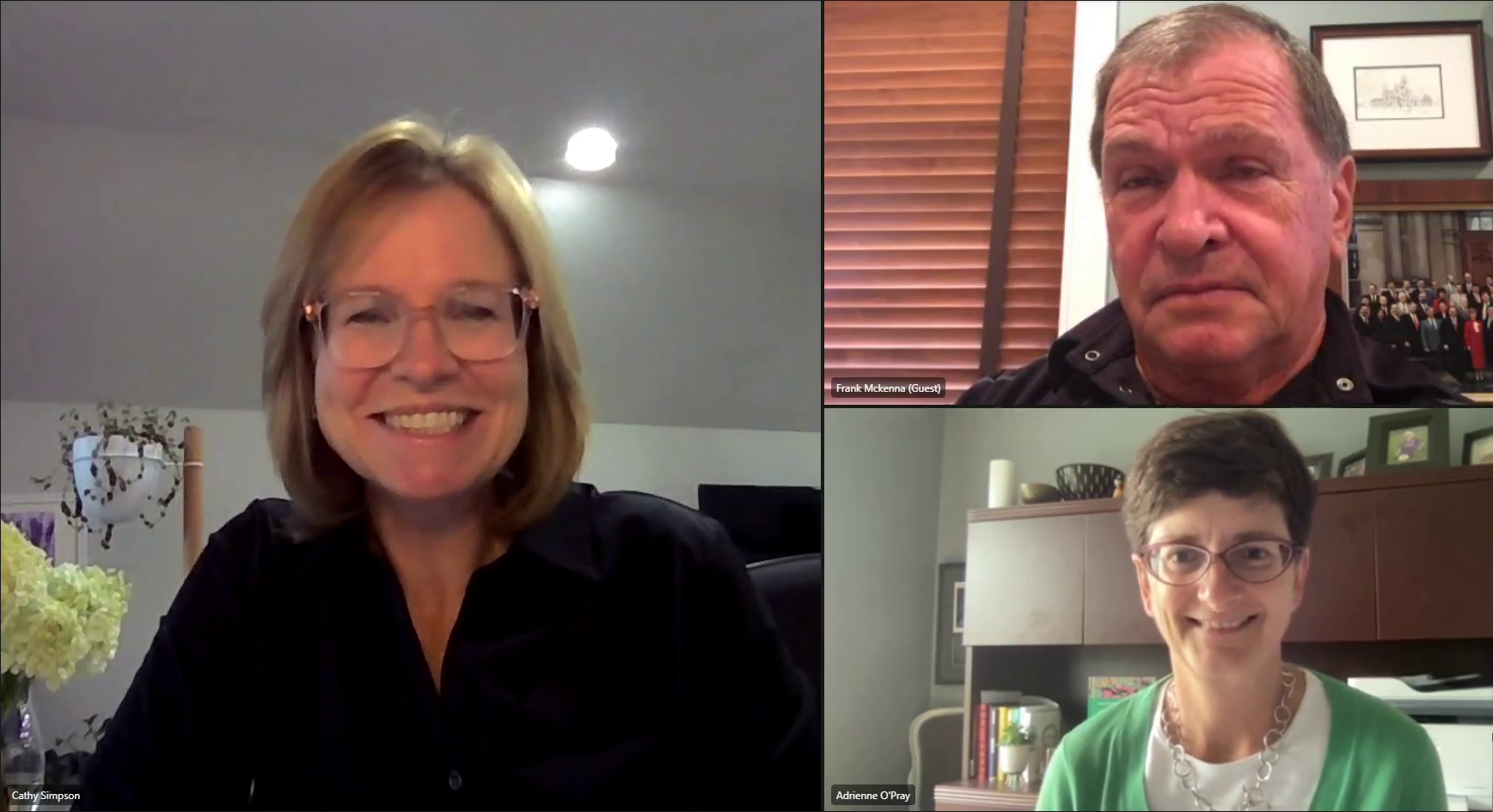A Non-Linear Path
With degrees in political science and engineering and an interest in how history, politics and technology interact, Rhiannon went straight from university into consulting and an international career that exposed her to many companies and technologies.
Eventually, though, feeling she needed more ownership, she took a leadership role in a European consumer healthcare business that she helped grow into a thriving multinational. She realized she loved being involved in disruption and pushing the limits.
She also wanted to step back and focus on her young family. So she and her husband and their kids set out on a sailing journey that changed her life.
“Seeing the world, seeing how others live, stepping away from growth and profit and consumers, which were so all-consuming to me for a period of time, takes you to a different level of understanding,” she says. “It made me better in business, oddly enough, because it took away my fear of failure.”
Back on dry land, she joined the board that took GrandVision N.V., a $5.5 billion CAD revenue retailer with businesses in 45 countries, through a successful IPO on the Amsterdam Stock Exchange. Working for a big public company was not for her.
“So that was the point where I jumped with my family on the boat and came back to Halifax to get back to my roots.”
Hands-On Training
For Cathy, increasingly senior roles with one of the world’s most recognizable brands gave her a real-life education in business and leadership. When she was offered a management position at McDonald’s soon out of high school, she took it.
“That experience satiated a real thirst in me to learn,” she says. The fast-paced industry gave her the chance to experience a lot of roles in a very large organization, from opening new restaurants to hiring staff and chairing the McDonald's Technology Leadership Forum, which would prove pivotal.
An early tech adopter, she saw it as a way to make things easier, more efficient, more environmentally friendly.
“I think technology manifests itself as one of the solutions to problems,” she says, an attitude that’s persisted throughout her career in business and, later, provincial politics.
Hatching Sandpiper
Sandpiper Ventures was born from a core group of successful women investors, executives and entrepreneurs in Atlantic Canada, including Cathy and Rhiannon, who wanted to do something about the gross underrepresentation of women in our tech sector.
For both, their passion for the subject grew over many years. Rhiannon says she was so busy during her career proving herself, breaking into mostly or all-male rooms and roles, that she wasn’t thinking about the broader implications of so few women in the tech sector, especially at the top. Her mindset was, “I was a woman; if I could do it, then everybody could,” she says. “But that's not the case.”
Cathy says it was a process to find her “assertive voice.” A pivotal moment came a few years into her restaurant management job, in the early 1980s. She was 18, managing 100 people at a restaurant doing $4 million a year in sales, and her KPIs were tops. And yet she was passed over for a promotion.
“My boss came in and said, ‘We're not gonna promote you because you might get pregnant.’ I just couldn’t believe it.”
Later, in her political career, including as the Minister Responsible for the Status of Women, she began to see how even small gestures and comments can breed misogyny and bias. And during her time in office, she herself was the victim of gender-based bullying, threats and shaming.
One time, at an international women’s event at the United Nations, she was sharing her story when an African delegate in her 80s waved her fist and said, “You will not be silenced.” It was an aha! moment.
“I realized that if I ever find myself in a situation where I'm not giving voice to people who can't, then I'm really not living the values that I had when I was five or when I was in high school,” she says.”Sandpiper provides a really, really important outlet for me to exercise that muscle that developed over multiple experiences.”
Money–and More
Sandpiper’s $20 million venture capital fund supports women-led companies at the seed stage, when they are most lacking.
Rhiannon says that just 3% of venture capital dollars go to women-led startups.
“And the statistics for women of colour, Indigenous women, LGBTQ women, women with disabilities are virtually non-existent because they're so small,” she adds.
Sandpiper is there to fill this gap.
“But it's a gap of opportunity,” Rhiannon says. “It's a gap of rockstar women-led companies that are going to change the world.”
Research shows that when women have access to capital, they deliver higher revenues, better exits and better companies.
But beyond funding, Sandpiper’s clients also need support, including mentorship, networks and training.
“They're looking for the people that are going to help them become a CEO,” Rhiannon says. “Women entrepreneurs are looking for other women who've been there, but also who are really in their court.”
So Sandpiper provides a sounding board, a place to help founders become CEOs, and to develop investors, as well, to the benefit of our entire tech sector and economy. As they say, this is not a women’s issue but a broad societal one.
“You can't lose 50% of the ideas,” Cathy says. “It's not good for the globe; it’s not good for humanity.”
They are getting the word out that Sandpiper is looking for allies, both men and women. To get involved as an investor, mentor or another kind of supporter, reach out at hello@sandpiper.va. And to hear our entire fascinating conversation, click here to listen.
Here's a peek at some of the highlights from this episode:
[07:25]: We dig into my guests’ early years, and Cathy reflects on her lifelong interest in fairness.
[16:36]: Rhiannon on embracing discomfort and getting out of her comfort zone.
[26:05]: Cathy describes her introduction to technology, how she’s always been an early adopter.
[32:24]: Rhiannon on realizing how alone she felt as a woman in the tech sector.
[44:18]: Cathy describes Sandpiper’s double focus, on developing entrepreneurs and investors.
[49:14]: Rhiannon on the challenges of raising $20 million for Sandpiper’s inaugural fund.
[53:44]: We talk about how the pandemic has changed things for the tech sector, the region and women in business.














